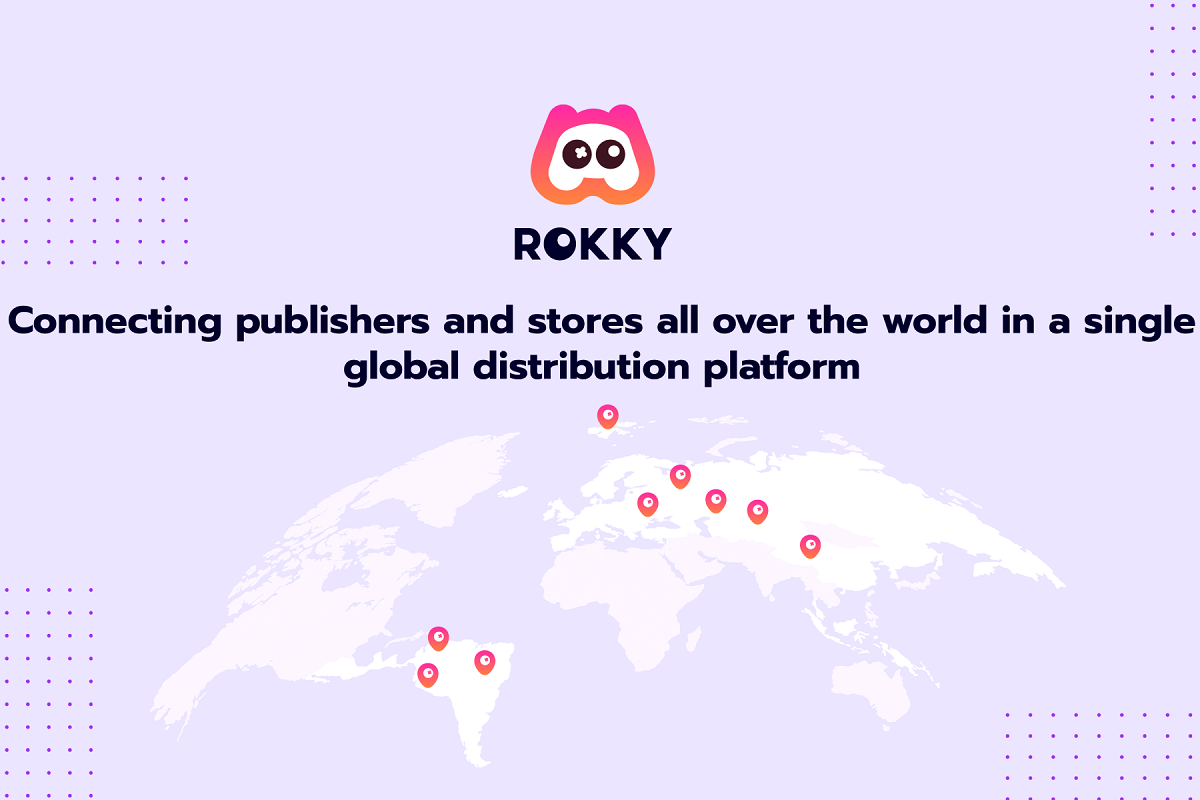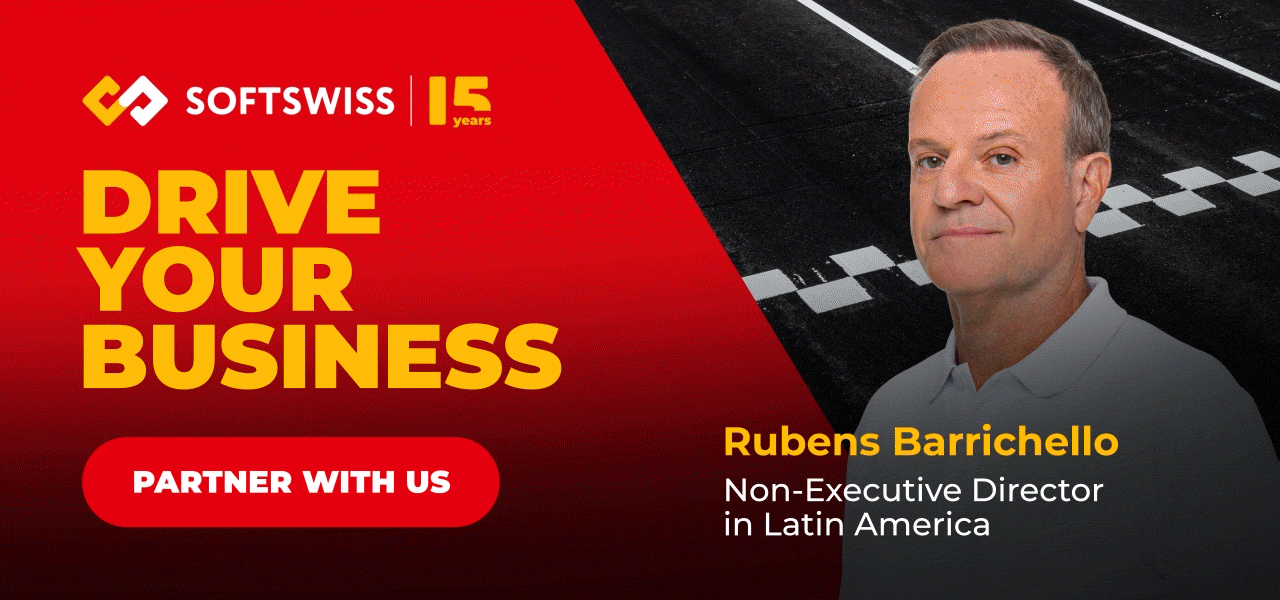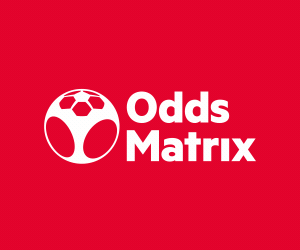Industry News
Digital Chain is a business statement. Iryna Kurochkina, Founder & CEO of DC, on the agency’s rebranding and ambitious plans

1. So, the first big gaming exhibition of the new decade, ICE London 2020, is here, and so is the crazy surprise: Digital Choo rebranding into Digital Chain! Tell us more about the idea and how long were you planning it.
The rebranding is a major change, and it came to us really naturally. Over the course of 3 years on the market we’ve developed an interconnected in-house infrastructure of services, won over great global companies as our clients, created many award-winning campaigns, and, in the end, we’ve changed. We have a larger grasp of understanding who we are and what value we present to our clients, partners, the advertising markets, and the world in general. So the aspiration for change came from the inside as a natural desire to match our external image with our internal values, the very essence of DC.

Digital Chain, ICE London 2020
What is Digital Chain? It is the power to break barriers and go above and beyond in pursuit of the outstanding results. It is intrinsically us — the international marketing agency that commits to using its complex knowledge and services to drive the process of brand establishment for every company that shares the same passion and beliefs with us.
2. Could you elaborate more on the practical implementation of the concept of rebranding?
The most obvious change is our brand identity embodied in all external branding, POS materials, merchandise and so on. However, Digital Chain is much more than visual changes. It is a business statement. It is about our plans, goals, and the services we bring to the market.
Every piece of our new image communicates exactly who we are and what value we carry to the world. Liquid metal is a key element of our renewed style: a symbol of the agency’s strength yet flexibility, the skills and expertise that complement the DNA chains of new strong brands that we help to create. Other new corporate colors add vibrancy to this philosophy, with Stark White to represent fearlessness, absolute freedom of action, purity of thought, the absence of chaos in our work processes, and Rich Black to reflect our passion for exploring the essence and solid, confident steps to conquer the unknown.
We are bold and daring in our aspiration to develop the international community, and this is essentially what the story’s about. In the near future, Digital Chain will connect even more markets all over the world, introducing its services to Asian and African clients. We will also contribute our expertise in niche verticals to the development of markets that have only recently adopted the global practices and undergo gambling legalization. And of course, we are about to expand our client portfolio both in niche and mainstream categories.

3. A general question on rebranding: If you are doing well, why should you rebrand? As they say in the US, “if it ain’t broke, don’t fix it”. Isn’t this the mantra?
Change is the only constant thing in the world. To keep yourself in an old framework when you’ve grown, and become so, so much more, is simply wrong. True freedom comes from being sensitive – first of all, to yourself; from being honest; from accepting who and what you are and bringing the corresponding image into the world with responsibility and good intentions. This is how real difference is made- by being yourself to the fullest. It is exactly the same for businesses as for individuals.
4. A number of big companies have fallen off their hallowed perch in the last decade or so. Kodak, Thomas Cook, Nokia, the list goes on. Changing technologies played a big part in that. Do you think in this era of rapid emergence of disruptive technologies, just rebranding alone can help the companies to flourish?
In a fast-paced world that we live in today, visionaries and pathfinders set the reality that everyone else is battling to succeed in. So yeah, technological advancement must underlie any other changes, without a doubt!
Watching the global market closely, over some time you start to see the pattern of all sales, mergers, acquisitions – an ever-evolving live organism that aspires to reach its maximum potential. It is important to keep everything connected so if one part changes, the others naturally follow suit as well.
5. Specific to the gaming sector, how should a company go about rebranding? What should be the underlying factors a company should consider before making a decision to rebrand?
This company should answer a nominal question “Why?”. As indicated, one of the lasting trends in the gaming/gambling industry, which is highly relevant in 2020, is market oversaturation. Target audiences have difficult time telling companies apart from each other. You may ask if rebranding is the answer. It could be, but it also could not be the one. It is a combination of factors and external influences that have to be taken into account to decide whether rebranding is truly what a company needs.
During the process, you have to be true to your brand essence, consistent, and… there are really many ingredients to the development of a perfect rebranding. A reliable and proven marketing partner is highly recommended to ensure all the details are perfectly set, and that the new brand really stands out and communicates the right messages in the right tone of voice.
Industry News
Playtika Reports Q2 2024 Financial Results

Playtika Holding Corp. released financial results for its second quarter for the period ending June 30, 2024.
Financial Highlights
Revenue of $627.0 million decreased (3.7)% sequentially and (2.5)% year over year.
DTC platforms revenue of $173.7 million increased 1.3% sequentially and 5.1% year over year.
Net income of $86.6 million increased 63.4% sequentially and 14.4% year over year.
Credit Adjusted EBITDA of $191.0 million increased 2.9% sequentially and decreased (11.2)% year over year.
Cash, cash equivalents, and short-term investments totaled $1.1 billion as of June 30, 2024.
“We are focused on the resilience and potential of our leading games and our strategic initiatives aimed at revitalizing our portfolio. We are actively pursuing opportunities to broaden our game offerings through M&A. Our focus is on identifying studios that complement our existing games and drive long-term value,” said Robert Antokol, Chief Executive Officer.
“Our focus on our direct-to-consumer business and our highly disciplined approach to managing operating expenses has led to a notable improvement in our margins on a sequential basis. We are taking steps to ensure sustained growth and profitability and we remain committed to delivering long-term value to our players and shareholders, our focus on execution remains unwavering,” said Craig Abrahams, President and Chief Financial Officer.
Selected Operational Metrics and Business Highlights
Average Daily Paying Users of 298K decreased (3.6)% sequentially and (2.9)% year over year.
Average Payer Conversion of 3.7%, up from 3.5% in Q1 and 3.6% in Q2 2023.
Casual games revenue decreased (4.3)% sequentially and (1.7)% year over year.
Social casino-themed games revenue decreased (2.9)% sequentially and (3.4)% year over year.
Bingo Blitz revenue of $155.7 million decreased (1.2)% sequentially and (0.4)% year over year.
June’s Journey revenue of $74.6 million decreased (2.6)% sequentially and increased 1.9% year over year.
Slotomania revenue of $133.8 million decreased (1.2)% sequentially and (7.5)% year over year.
Playtika Announces Quarterly Dividend
Playtika’s Board of Directors declared a cash dividend of $0.10 per share of the outstanding common stock, payable on October 4, 2024 to stockholders of record as of the close of business on September 20, 2024. Future dividends are subject to market conditions and approval by the Board of Directors.
Financial Outlook
For the full year 2024 the company expects revenue to be toward the bottom end of the previously provided range of $2.52 – $2.62 billion, Credit Adjusted EBITDA to be in the middle of the previously provided range of $730 – $770 million and capital expenditures to be within a range $95 – $100 million.
Industry News
Navigating the iGaming Industry as a Start-Up

Pierre Mifsud, Chief Commercial Officer of the VentureMax Group, says the iGaming world presents plenty of opportunities for new companies bursting with rich ideas – so long as they can avoid its pitfalls.
The global online gambling industry has always attracted the brightest minds, creative talents and those with the strongest entrepreneurial spirit.
There is no end of success stories, from boutique studios being acquired for hundreds of millions to tier-one operators merging and consolidating to become undisputed international powerhouses. But where some businesses find success, others can and do fail.
This is because the online gambling industry is tough to navigate. It’s a minefield, and one wrong move can mean game over. You need more than just a great idea or smart product to make it to the top – and financial backing, no matter how much, will only get you so far.
Ultimately, start-ups must master all areas of business, from product quality and customer experience to regulation, differentiation, marketing and funding. And even then, success is not a given.
Let’s look at some of these key areas and see how start-ups can avoid the barriers they present.
Regulation, licensing and compliance
Vast swathes of the map turned from grey to white once the industry embraced regulation. This has opened up significant opportunities for organisations to explore, but it has also presented new challenges to overcome.
Operators, suppliers and other service providers must now secure licences and certifications to launch in regulated jurisdictions, with requirements differing from market to market – and this is easier said than done.
Most organisations have a dedicated department focused on securing the required approvals to enter markets, and then a compliance team to ensure requirements are being met at all times – the cost of non-compliance can be so high as to prove fatal for a start-up.
So think about having a specific team to handle all your regulatory needs, even if it’s just one person, because that’s how you’ll ensure your business can stick around for the long term.
Standing out from the crowd
Such are the opportunities available in this industry, it’s no surprise there are a lot of start-ups chasing after them. This means bringing something new to the table, as a means of standing out, is vital.
This can be something truly innovative – a never-seen-before game format, a fresh mechanic, a piece of technology that solves a problematic issue, or simply finding a better way of doing something already being done.
Technology is a great driver of innovation, and the start-ups that go on to achieve the most often have a proprietary platform, solution, mechanic, etc that takes the industry by storm.
Of course, this is not essential to success, and we have seen plenty of start-ups go on to do great things by improving what is already being done.
Either way, start-ups need to make an impact and won’t get far by copying those that have come before them, so embrace originality and look for a unique selling point that offers something fresh.
Engaging customers at scale:
Of the main challenges for any business – whether B2B or B2C – is engaging customers at scale. This requires a comprehensive marketing strategy that allows the business to engage customers in the right place at the right time via messaging that truly resonates.
With such high levels of competition, it’s important for businesses and brands to be authentic, and to have a clear voice through which they communicate with their audience.
This is why it’s so important for the business to have a well-defined identity and purpose as this is the only way to be heard above the noise made by rivals. It’s also crucial to identify the channels through which you can really connect with customers.
Digital marketing, when done right, is really cost-effective, highly trackable and easy to optimise in real-time so long as the right data is being gathered and analysed.
That’s why this type of marketing is an absolute must for B2B and B2C businesses.
Securing seed funding
The vast majority of start-ups find they need to secure funding to drive ahead with their plans. Organic growth is always possible, but it does take time, and this can mean the business misses a window of opportunity.
But finding the right investment partner can be easier said than done. Some investors are willing to front capital but don’t want to be overly involved in the day-to-day running of the business, while others can require more control and input than the founders want to relinquish.
Start-ups must also consider how they can make themselves attractive to the right investor. The VentureMax Group has an investment division and has clear criteria that businesses need before considering whether to get involved with them.
These include:
- Being early stage with significant growth potential
- Being a business that can disrupt
- Being a business with innovative technology
- Having a strong founding team
- Having scalable and defensible market opportunities
Our approach to investing is that it needs to be a true partnership.
Not only do we want to provide financial backing to the start-up, but we also want to share our extensive experience and help businesses successfully navigate this amazing industry.
So while there are plenty of challenges to overcome, the rewards are great for those who do manage to make their iGaming start-ups thrive.
Industry News
Maximising Game Success: The Advantages of Partnering with a Distribution Partner

A video game will go through seven stages of development during its life cycle, including planning, pre-production, production, testing, pre-launch, launch and post-production. Once released, video games are competing for players’ attention and with so many games to choose from, it can be difficult to maintain interest. Working with a distribution partner during the latter stages of a game’s development life cycle instead of relying on a giant such as Steam will provide publishers with numerous strategic advantages and ensures their game remains relevant several months after its release.
Vadim Andreev, CEO and co-founder of Rokky, a global game distribution platform that connects publishers and stores worldwide, breaks down the first year of sales for a video game once it’s launched and discusses the benefits of working with a distribution partner such as Rokky.
How third party distribution platforms effectively compete against giants like Steam
On average, a game on pre-order sells approximately 1% of all sales for the entire year two months before release. This then increases to 4% of all sales for the year two-to-four weeks before release. The peak of pre-order sales starts a week before release and publishers can expect to sell 12% of all sales for a game’s first year during this period. During the pre-order period, Rokky makes an average of 16% of a game’s annual sales, highlighting the importance of making a game available to pre-order.

When looking at the release day, Rokky will make another 8% of all sales for the year. In comparison, VG Insights shows that, on average, 12% of all sales are activated on Steam during a game’s release, possibly because some sales flow into the first day after release due to VG Insights’ data recording features. Rokky then makes another 15% of all sales for the year in the first week after release, according to the company’s analysis. Concurrently, Steam accounts for 22% of all sales for the year in the first week.
Sales then gradually start to decline and in the first two-to-four weeks after release, they make up 7% to 4% per week for Rokky and 14% to 5% for Steam. During the pre-order period, release, and the first month of sales combined, Rokky sells 56% of a game’s copies for the entire year, while Steam sells approximately 61%.

In the remaining ten months of the year, almost half of all sales for the year are made, with Rokky making 43% and Steam 38%. At the same time, the trend line on the following graph shows that sales through the third party distribution platforms generally fade more slowly than through Steam.

Third party distribution platforms provide a more flexible and consumer-oriented approach
Working with a distribution partner like Rokky can provide a publisher with several strategic advantages as third party distribution platforms can expand market reach, adapt to changes in demand, minimise the risks associated with international sales, and much more:
- Market Restrictions: In some countries and regions, there are strict government restrictions on the sale of video games, making it difficult to sell directly through platforms like Steam. Distributors like Rokky who have experience in these markets can successfully overcome such barriers and provide access to new audiences.
- Less Flexible Pricing: Steam cannot always respond promptly to changes in demand for a game and offer timely discounts or special offers. Distributors, on the other hand, can adapt more quickly to market conditions and apply more flexible pricing strategies, helping to increase sales.
- Localization and Cultural Adaptation: Distributors working in specific regions better understand local cultural features and can offer adapted content, including game localization, marketing campaigns, and user support in the native language, which increases a game’s appeal to local players.
- Marketing Support: Distributors often provide additional marketing resources such as advertising, PR campaigns, and participation in local events and exhibitions. This can significantly increase a game’s visibility and attract more users than standard marketing efforts on Steam.
- Logistical Support: In the case of physical copies of games, distributors provide all the necessary logistical support, including production, warehousing, and delivery, relieving publishers of a significant portion of organisational tasks and allowing them to focus on content development.
- Legal and Financial Support: Working in international markets may require knowledge of local laws and financial requirements. Distributors with experience in various jurisdictions can provide legal and financial support, minimising risks and ensuring compliance with legal requirements.
- Broader Audience Reach: Distributors often have established connections and partnerships with local retail and online stores, allowing them to reach a wider audience and sell games through multiple channels, thereby increasing sales and brand recognition.
The benefits of working with a distribution partner is further evidenced by the fact that, in percentage terms, the share of sales through the distributor relative to total sales on Steam increases over time. The following graph shows the change in the percentage of sales through Rokky compared to total sales on Steam over the 12 months following the game’s release. However, it should be noted that the data presented in the graph represents aggregated values for the top-selling games in Rokky’s database. Individual cases indicate that the distribution of values for each game can vary significantly.

At the time of release, the percentage of sales through Rokky reached a peak of about 4%. During the first week after release, there is a sharp decline in the percentage of sales to just below 1%, which remains stable throughout the first month. When looking at the first month, the percentage of sales starts to gradually increase, reaching 0.78% at the end of the second month and 1.02% by the end of the third month.
From the third month, there is a noticeable fluctuation in the percentage of sales, with an overall upward trend, peaking in the sixth month. Usually, the first promotions for the game begin at this time. According to Geekyminded, it takes 70 days on average before a game’s first sale.
Starting from the sixth month, the percentage of sales shows even more significant growth, reaching new peaks in the ninth month at 2.87%. Sales rebound in the tenth month due to people taking advantage of significant discounts in previous periods. By the end of the twelfth month, the percentage of sales through Rokky stabilised at 1.55%.
Despite fluctuations in the percentage of sales, the overall trend indicates a growth in the share of sales through the distributor Rokky relative to total sales on the Steam platform during the first year after a game’s release. The growth in the share of sales through the distributor relative to total sales on the Steam platform is based on several factors:
- Price Competition: Stores through which the distributor sells a publisher’s games actively use their margins to compete on price. They can offer various discounts and promotions, making their offers more attractive to buyers compared to fixed prices on Steam.
- Promotions and Marketing Support: Distributors and their partner stores often run various promotions, sales, and special offers, drawing attention to products and stimulating sales growth.
- Localization and Adaptation to Regional Markets: Distributors can better adapt their offerings to the specific requirements and preferences of local markets, helping to increase sales in regions where Steam is not as popular or lacks sufficient marketing support.
- Variety of Payment Methods and Delivery Conditions: Distributor stores can offer more flexible and diverse payment methods, as well as more convenient delivery conditions, making purchases more accessible and convenient for various categories of consumers.
- Investing in Customer Service: Distributors often invest in improving the quality of customer service, providing better support, which helps retain customers and increase sales.
Thus, Rokky successfully competes with the Steam platform, increasing its share of sales in the overall structure through a more flexible and consumer-oriented approach. The demand for games through third party distribution platforms such as Rokky decreases much more slowly compared to Steam, thereby providing publishers with stable and long-term revenue. Stores, competing on price and offering various promotions, can maintain interest in a game several months after its release.
For more information on how to make the most of the digital distribution for your next game, visit https://rokky.io.
-

 Asia7 days ago
Asia7 days agoEast Timor President Backs Online Gambling for Foreigners Only
-

 Gaming7 days ago
Gaming7 days agoBig Screen Gaming Summit Joins PG Connects Helsinki, Spotlighting PC and Console Development
-

 Eastern Europe7 days ago
Eastern Europe7 days agoCT Gaming Announces Participation at EAE 2024
-

 Interviews7 days ago
Interviews7 days agoStartup Contest Q&A w/ Vladimir Malakchi, CEO & Managing Partner of Xanada Investments
-

 Balkans7 days ago
Balkans7 days agoAdmiralBet has enhanced its partnership with EGT Digital for Montenegro
-

 Latest News7 days ago
Latest News7 days agoSOFTSWISS Extends Its Charity Campaign to Support Flood-Affected Regions in Brazil
-

 Conferences in Europe6 days ago
Conferences in Europe6 days agoEuropean iGaming Excellence Awards 2024: Online Voting Now Open – Cast Your Vote for the Shortlists!
-

 Compliance Updates5 days ago
Compliance Updates5 days agoImagine Live obtains Swedish Approval




















































